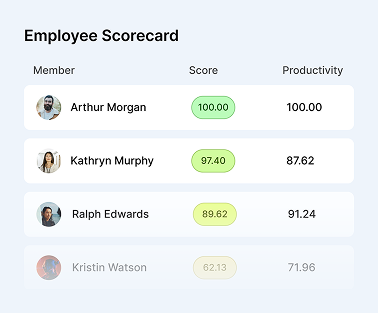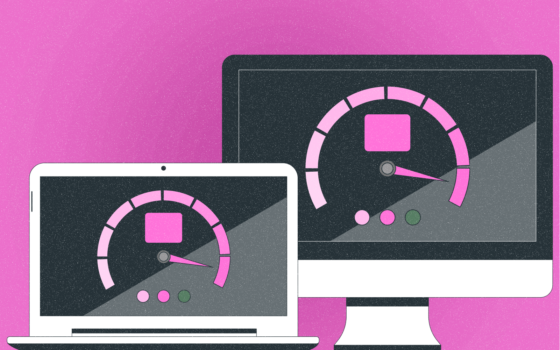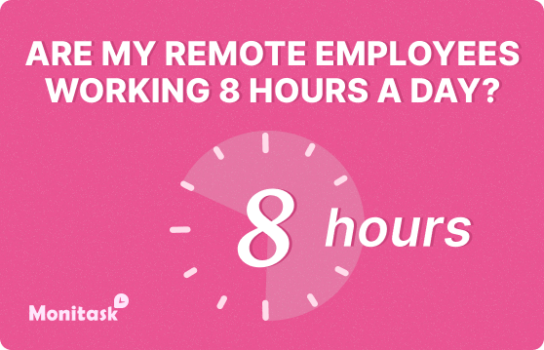15 Tips on How to Be Proactive at Work
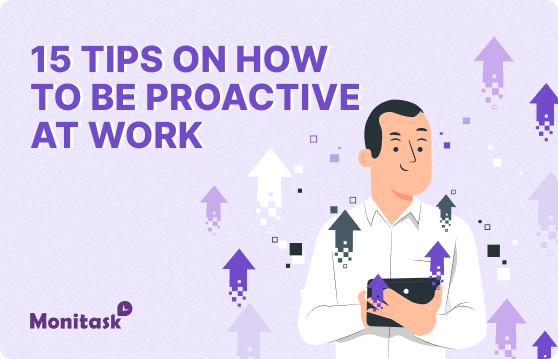
If you’re waiting to be told what to do, you’re already behind. The people who stand out at work don’t just react—they stay ahead of the curve. They solve problems before they escalate and act without needing permission.
Being proactive isn’t about doing more work—it’s about doing the right work with focus and intention. It’s how you create momentum, build trust, and take control of your professional growth.
Whether you’re aiming for a promotion or just want to stop feeling like you’re always catching up, these 15 habits will help you build a proactive mindset and become someone others rely on.
1. Set Clear Goals
Proactive employees don’t drift through the day hoping they’re on the right track—they define what success looks like. Start with your role: What are your key responsibilities, metrics, and priorities? Break those into smaller, manageable steps.
If your goal is to improve client satisfaction, that might mean faster response times, clearer documentation, or better follow-ups. Write your goals down and review them weekly. Check your progress, pivot if needed, and make sure your efforts align with team or company goals. Clear goals give your work focus and direction—without them, you’re just reacting.
2. Plan Your Day in Advance
Every productive day starts the night before. Before logging off, identify your top 3–5 priorities for the next day. Block out focused time on your calendar for the work that matters most, not just the urgent noise.
Proactive planning means you start with intention, not chaos. It helps you minimize distractions, reduce stress, and hit the ground running. Stay flexible—plans change—but always return to your core priorities. Over time, you’ll get more of the right work done with less burnout.
3. Anticipate Problems Before They Happen
Think a few steps ahead: What could derail this project? What’s the backup if a stakeholder pushes back or a tool fails? Proactive thinking means looking beyond the task at hand and scanning for risks, dependencies, and weak spots.
Study past projects, learn from team failures, and ask experienced colleagues where things usually go wrong. Then build contingency plans. When others are scrambling, you’ll be the one who already has a Plan B—and that builds serious credibility.
4. Take Ownership of Your Work
Ownership isn’t about doing more—it’s about caring more. It means you take full responsibility for outcomes, not just outputs. If something’s off, you don’t wait for a manager to flag it. You speak up, take action, and fix it.
It also means no excuses, no finger-pointing. You communicate early when there’s a delay, and you take pride in the quality of your work. People notice. Ownership earns you trust, autonomy, and opportunities—because you’ve proven you’re someone who gets it done and stands behind your work.
5. Seek Feedback Regularly
Waiting for annual reviews to get feedback is too slow. Proactive professionals ask for input consistently. Go to your manager, teammates, or even clients and ask, “What’s one thing I could do better?”
Then listen—without defensiveness. Feedback is a shortcut to growth. And when you apply what you’ve learned, people will see you as someone who’s serious about improving—not someone who needs to be pushed.

6. Volunteer for Challenging Tasks
Want to grow fast? Raise your hand. Volunteering for complex, high-visibility, or time-sensitive projects shows initiative and confidence. It pushes you outside your comfort zone—and into the spotlight.
You’ll build new skills, gain exposure to senior stakeholders, and earn a reputation as someone who steps up. Don’t wait to be asked. Ask where the team needs help or identify gaps you can fill. It’s one of the fastest ways to level up.
7. Build Strong Relationships
Being proactive isn’t just about action—it’s about influence. And relationships fuel that influence. Make it a habit to connect with people outside your immediate circle. Schedule casual coffee chats. Ask what they’re working on. Offer help without expecting anything in return.
These connections pay off when you need information, support, or buy-in. Strong relationships also help you spot changes early, reduce friction, and get things done faster. And when you show up for others, they show up for you.
8. Stay Informed About Your Industry
You can’t anticipate change if you’re not aware it’s coming. Keep a pulse on your industry. Read newsletters, follow relevant people on LinkedIn or X (Twitter), listen to podcasts, or join online communities.
Look for shifts in customer behavior, competitor moves, and emerging technologies. Then ask: How does this affect our work? Sharing external insights in internal meetings shows strategic thinking—and it positions you as someone who looks beyond your desk.
9. Improve Your Time Management
Proactive professionals control their time instead of letting time control them. Start by identifying your most focused hours and guard that time for your most important work. Use strategies like time-blocking, task batching, or the Pomodoro Technique.
Also, schedule time for planning and reflection. A 15-minute daily review can save hours of wasted effort. When you manage your time intentionally, you create space to think ahead and execute with clarity.
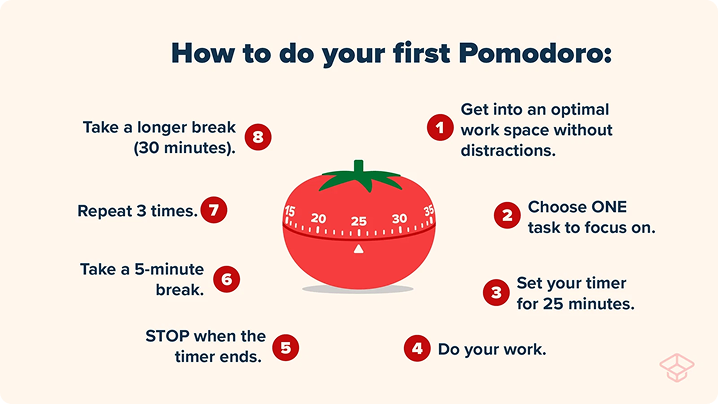
10. Be Solution-Oriented
Problems aren’t the enemy—complaining without action is. Proactive people bring solutions. When something breaks, they don’t just say, “This isn’t working.” They say, “Here’s what we could try instead.”
Dig for root causes, not surface symptoms. Offer options. Assess risks. This mindset turns you into a stabilizing force on your team—someone people turn to when things get tough.
Maximize productivity of your business
Track employee productivity and simplify work with them
11. Communicate Clearly and Early
Silence causes problems. Proactive communication means keeping stakeholders in the loop before they ask. Give regular updates, flag issues early, and share timelines and next steps.
Be clear and concise—don’t overshare, but don’t leave people guessing. If you anticipate a delay, notify the right people with a solution-ready update. This kind of proactive communication builds trust and shows leadership, even if you’re not in a formal leadership role.
12. Learn from Mistakes Quickly
Everyone makes mistakes. What sets you apart is how quickly you recover. A proactive response is simple: Acknowledge it, fix it, reflect on it, and move forward.
Don’t make it personal. Make it useful. Share your learnings with your team if it can help them avoid similar pitfalls. That transparency earns respect and models maturity.
13. Ask Questions Before You’re Stuck
Confusion isn’t a problem—staying silent is. Too many people wait until they’re in over their head to ask for help. Proactive employees ask smart questions at the beginning.
Clarify expectations. Understand the context. Confirm deadlines and goals. This prevents wasted effort and ensures you’re aligned from the start. It also signals initiative and attention to detail.

14. Keep Improving Your Skills
Your value at work is tied to your skills—and proactive people invest in those constantly. Identify what will make you better at your current job and what will prepare you for the next level.
That could mean learning a new tool, strengthening soft skills like communication, or earning a certification. Combine learning with action: apply new skills on the job and look for stretch assignments. The more you grow, the more options you create.
15. Look for Efficiency Gaps
Every team has slow, clunky processes. Proactive professionals don’t just accept them—they improve them. Watch for repeated friction points. Are you copying the same info into two tools? Running reports manually that could be automated?
Document what’s broken, suggest alternatives, and test small improvements. Even simple tweaks can save hours and headaches—and show that you’re thinking like an operator, not just a task-doer.
Conclusion: Working Smarter
Becoming proactive at work isn’t about working harder—it’s about working smarter and stepping into ownership of your role. It’s a mindset that shifts you from reacting to shaping, from waiting to initiating, and from following to leading.
The most respected and successful professionals aren’t the ones who wait to be told what to do—they’re the ones who show up ready, stay one step ahead, and create positive momentum for themselves and those around them.
Start with one or two areas you want to improve. Build habits around them. Over time, these actions compound—turning you into someone others rely on, look up to, and learn from.
– The Monitask Team
FAQ: How to Be Proactive at Work
Is being proactive the same as being busy all the time?
No. Proactivity isn’t about staying busy or overloading your schedule—it’s about being intentional with your time and energy. A proactive person focuses on important, strategic actions, not just urgent tasks.
How can I start being more proactive if I feel overwhelmed already?
Start small. Choose one area—such as better planning or clearer communication—and practice it consistently. Proactivity actually reduces long-term overwhelm by helping you stay ahead of tasks instead of constantly playing catch-up.
Does being proactive mean I have to take on more work?
Not necessarily. It means being thoughtful about how you approach your current work, suggesting improvements, or solving problems before they escalate. You can be proactive without increasing your workload—often it leads to working more efficiently.
